Q. Good morning, Mr. Nifong.
.
A. Good morning, Mr. Brocker.
.
...
.
Q. And when Mr. Hardin, Judge Hardin now, was nominated to become a Superior Court Judge, did you seek the appointment as DA?
.
A. In a sense, yes. I had never sought the position of District Attorney because my primary interest was in prosecuting cases in the courtroom, and a District Attorney was not primarily involved with that. Mr. Hardin requested that I apply for or that I allow myself to be considered for the position. What he told me was that he would not get -- he would not be appointed the Superior Court Judge if I did not agree to become District Attorney. It was something, I said, that--because it was not something I ever dreamed about doing--I would need to speak with my wife about. And I did speak with her and we decided that because of my concern for the contined well-being of the office, that it was the best thing to do. And so, I did contact Reuben Young, who was the Governor's Chief Counsel, I think that's what his title is, and submitted a resume and interviewed with him for that position.
.
Q. Did Judge Hardin explain to you what he meant when he said that he couldn't get the judgeship unless you agreed to be the DA?
.
A. Not really. He did say that there were two other people that had been -- I was not even aware that this was something that was in the works, but apparently other people were. And he said that there were two people in particular who had been considered. One of them was Tracey Cline, who remains a prosecutor in the DA's office, as my chief assistant for Superior Court or First Assistant for Superior Court. The other is a man named Marvin Waters, who was previously in the District Attorney's office and works, still works, for the State in some capacity, I am not sure exactly which division he is with now, an attorney capacity, he works in Raleigh. I knew both of them very well. And the understanding that I was given was that there were certain political supporters of Ms. Cline and certain political supporters of Mr. Waters and that the Governor was not looking to disadvantage himself with either of those groups and was looking for somebody who would not -- would not disadvantage either one of those groups. Somebody that people would accept as someone who would do the job and would not have any further fallout.
.
Q. Did you just speak with Mr. Young or did you actually speak with the Governor at some point?
.
A I never spoke with the Governor at any point during the process.
.
Q. In your discussions with Mr. Young, did the subject ever come up about whether or not you would seek election once the term was over?
.
A. In a sense it did. When Mr. Hardin first approached me about the position, he said that one of the concerns that the Governor had in terms of appointing either of these people is that he would be putting somebody in a position that would then make it more advantageous for that person to run for office, and that that was one of the concerns that the Governor had about appointing either of those people. I told Jim at the time, Jim Hardin at the time, that I would not be interested in accepting any position if there were strings attached. And I expressed the same thing when the question came up with Mr. Young. I told him that I would not be able to make a decision about whether I wanted to run for the office or not until I actually had occupied the office and had determined what it was like. Whether it was something that I was comfortable with and whether it was something that I had a sufficient vision for that I would want to continue. And I did tell him, I believe in no uncertain terms, that if there were strings attached to the position, in other words, if he wanted a commitment prior to my going into the office that I either would or would not seek that office, that I was not his man, and that they needed to look elsewhere.
.
Q. So what did you tell Mr. Young was that you wouldn't commit one way or another to whether you would seek election after?
.
A That is correct.
.
Q. Why did you decide to run for election as the DA in late 2005 or early 2006?
..
A. There was -- this is -- it's a little uncomfortable for me to say this, some of these things, and I don't know how to do this otherwise. There was a person who was interested in the job. The only viable candidate other than myself at the time who, I felt, would not be someone that I would want to see the office turned over to. And that would be Freda Black. I mean, it's just uncomfortable to say that. It was -- Ms. Black was the only attorney that I did not retain at the time that I became District Attorney. I agonized over the decision, even though I felt it was the appropriate decision to make, and told her within a couple of days of becoming District Attorney that I would not have a position for her. There were a couple of support people that also ended up leaving the office at some point after that, but she was the only attorney that I did not retain. I allso felt that when I got into the office and got into the process of hiring people and making some changes that I had felt all along what would be beneficial that it was something that I wasn't going to be able to do in a year and a half. And that I did, in fact, have a vision for the office about where I wanted it to go and what I wanted us to be able to do, and that I would need an additional term, you know, past the year and a half, that would give me some extra years to do that. And so, I set off on that course. I had never run for political office before and I don't know that I fully appreciated exactly what I was getting myself into. But once decided that I was going to do that, I was committed to that course of action and followed through on it.
.
Q. From your answer, I take it that you decided to run -- as far as timing goes, you decided to run after you knew Ms. Black either announced or was planning on running for the position, as well?
.
A. Well, there had been speculation for some time that she was going to run for a District Court judgeship or something along those lines. she had -- for most of her career as a prosecutor in Durham, she had actually lived in Wake County, which would make her ineligible for a seat as a judge or as a District Attorney. And so relatively recently she had moved into Durham, and it was generally perceived that she was looking for that kind of an office. And the original perception was that she was most likely going to be interested in seeking a District court judgeship. The -- my decision to run actually, I believe, was made before she made any announcement. And one of my hopes in doing that was to dissuade her from seeking that particular office, the office of District Attorney.
.
Q. Did you announce your candidacy before she did?
.
A. I did. Yes, sir. I don't remember the exact timing. I spoke to a reporter--I believe it was John Stevenson--sometime maybe in June or July about my decision to -- that I had made the decision to seek a single term. And then at some point after that, she made an announcement that she was also going to be seeking that office.
.
Q. Why did you decide not to -- why was she the only person that you decided not to retain in your office?
.
...
.
A. I mean, I can tell you in general terms that there were -- there was a perception in the office by people that were working in the office that Ms. Black was paid a lot of money and didn't do a lot of work, and that created a certain amount of resentment, especially among the other relatively senior Superior Court prosecutors. During the first two days -- I say during the first two days, I believe it was during the first two days that I became the -- after I became the DA, I also got visits from the sergeant who was in charge of the Investigations Division, and also the Chief, and I believe it was Major council, so a sergeant, chief and a major from the police department who came to me to express--the sergeant by himself and the chief and the major together--their concerns over relationships between their department and Ms. Black...
..
Q.Okay. How would you -- prior to you taking over as a DA, generally how would you describe your relationship with Ms. Black, professional relationship in terms of --
A.There were no -- no specific issues with that relationship...Well, part of my job was to get along with the people in the office. I mean, I think that's always part of the job anytime you're working in that kind of a setting. of course, I was also the Chief Assistant, and so I had some supervisory responsibilities over everyone else in the office, although with most people that didn't have to be regularly exercised. Generally speaking, if things came up when Mr. Hardin was not in the office, I was expected to deal with it. And so, in that connection, I had become aware of some of these frayed relationships that seemed to center around Ms. Black, and I was aware that there were some people who had left the office because of her presence in the office, and that there were other people who were planning or were considering leaving the office, had put in applications other places. In terms of our personal interactions, they were always very friendly. I never -- I did not see many of the -- actually, I don't recall seeing any of the people in the office, other then Mr. Hardin, in even on an irregular basis outside the office. I would occasionally, since Jim and I had been friends for a while, we were part of a circle of couples that would often get together for dinner, and so I would see him outside the office. But otherwise, I didn't really have any outside relationships with anybody in the office. So, within the office, we were friendly, but I wasn't especially close on the social basis with anybody in the office, so I didn't -- that would have made it kind of difficult to do my job.
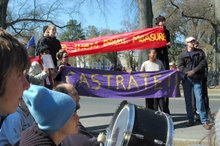




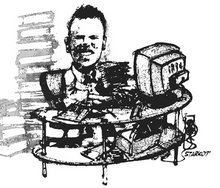
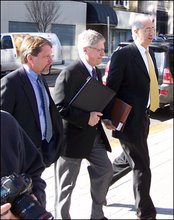
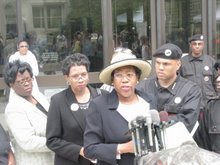
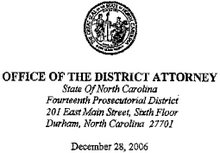
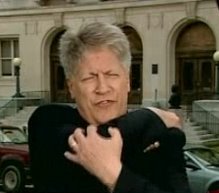

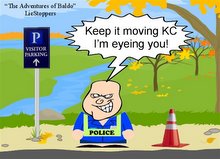

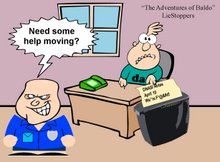

















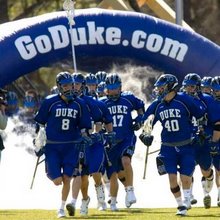

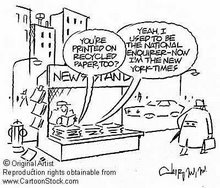





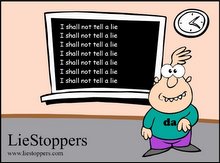






No comments:
Post a Comment